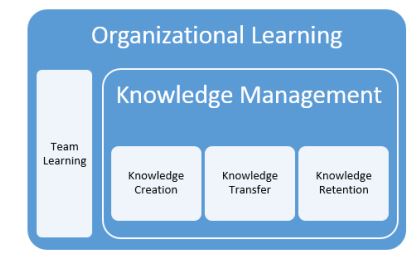HR Challenges within the UK Nuclear Industry: Knowledge Retention and Transfer (2014)
Knowledge Retention and Transfer Dissertation – Growing energy demands, urgent needs to address climate change, finite natural resources, instability and insecurity of energy supply on European market brought nuclear power back to the UK’s Government agenda. Moreover, in 2008 the New Labour Government announced that nuclear power would play a key role in the UK’s future energy mix, stating: We are determined to get new nuclear up and running as soon as possible. As a result, energy companies have announced their plans to build up to 16 GW of new nuclear power capacity in the UK by 2025.
New build will create approximately 10,000 jobs per year until 2025 which will require a high number of qualified and skilled engineers, scientists and technicians. However, such trends as an ageing workforce and low numbers of students undertaking nuclear disciplines can put the new nuclear build programme at risk. More than half of currently employed experts will leave the UK nuclear industry in the next 10-15 years, taking with them knowledge that was accumulated for the past 50-60 years and potentially creating a significant skills shortage.
Some of this knowledge can be critical for the safe, reliable and efficient operation of a nuclear plant, for design and construction of new nuclear plants and for decommissioning of the retired plants and if no action is taken, it could be lost. Therefore, in order to maintain a high level of safety in the UK nuclear industry and to meet a growing demand for nuclear experts in the nearest future, energy companies will not only have to attract new people and retain existing expertise, but also successfully replace experienced retired staff and transfer their knowledge to a new generation. Despite the many challenges that the nuclear industry is currently facing, this research will focus on the biggest and most crucial one – maintenance of knowledge and skills in the UK nuclear industry.
This choice was made as the safe and reliable operation of nuclear plants is the primary concern at all times which strongly relies on skilled people who have the right knowledge and experience. Such expertise can mainly be acquired through specifically designed in-house training programmes and work experience. That is why preserving and transferring the existing nuclear knowledge to new generation is the biggest and the most important HR challenge that the UK nuclear industry is currently facing. It has to be addressed promptly and effectively due to the safety-critical nature of the nuclear operations.
In addition, successful transfer of knowledge will create a strong base for young employees helping them to avoid the mistakes that previous generation made. Therefore, the aim of this dissertation is to look at the HR challenges that the UK nuclear industry is currently facing and to analyse in depth one of them – knowledge retention and transfer (KRT). To answer the research question the following objectives were set:
- To analyse the current labour market issues around the UK nuclear industry and look closely at the supply and demand side of it, focusing on expert workers such as engineers, technicians and scientists
- To examine the key concept about theories and ideas of knowledge management (KM) and KRT in particular
- To explore the relationship between theories on KRT and practices currently established in the UK nuclear industry and analyse the effectiveness of these practices in the context of the theories
- 25,000 words – 76 pages in length
- Excellent use of literature
- Good analysis of subject area
- Well written throughout
- Ideal for international HRM students
1 – Introduction
Overview of the Energy Industry
Definition of Scope
Aims and Objectives
Dissertation Structure Outline
2 – Research Methodology
Rationale for the Research
Research Methodology
Research Methodology Used in Other Studies
Research Limitations
3 – UK Nuclear Labour Market
Overview of the Reasons for Nuclear Skills Shortage in the UK
Supply of Nuclear Experts in the UK
Demand for Nuclear Experts in the UK
Analysis of Supply and Demand for the Nuclear Experts in the UK
HR Challenges the UK Nuclear Industry is Currently Facing
4 – Knowledge Management Theories
The Importance of Knowledge Management and Knowledge Retention and Transfer
Knowledge Management and Knowledge Retention and Transfer
Knowledge Retention and Transfer as a Part of Knowledge Management Strategy
5 – Knowledge Retention and Transfer in the UK Nuclear Industry
Why Knowledge Management is Important for the UK Nuclear Industry
Nuclear Knowledge Management
The UK Experience and Perspective on Knowledge Retention and Transfer
6 – Conclusion
References

